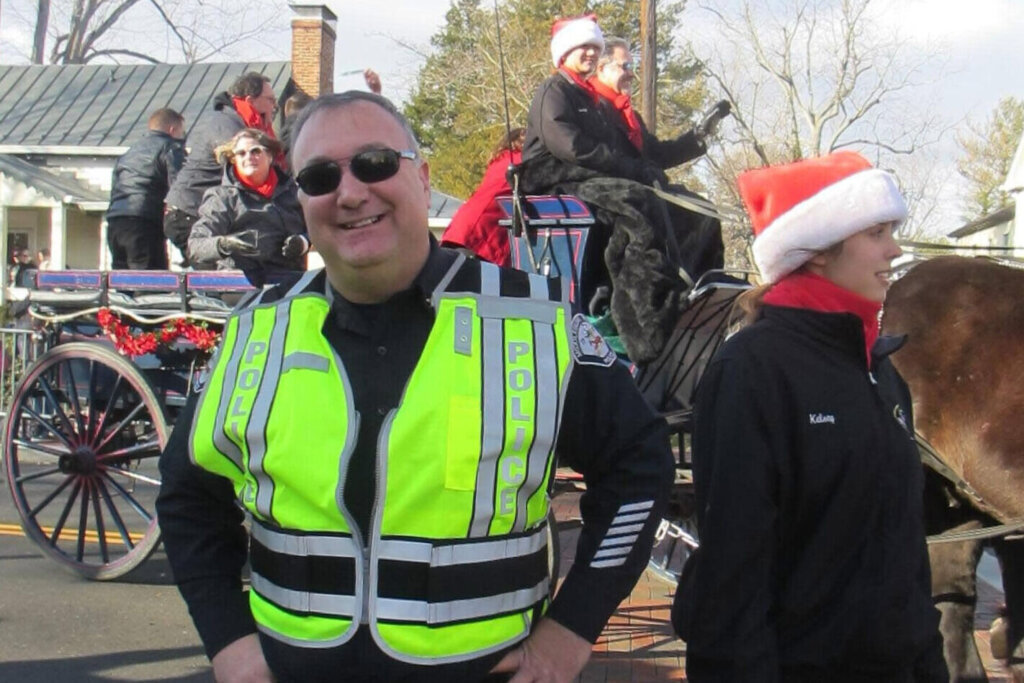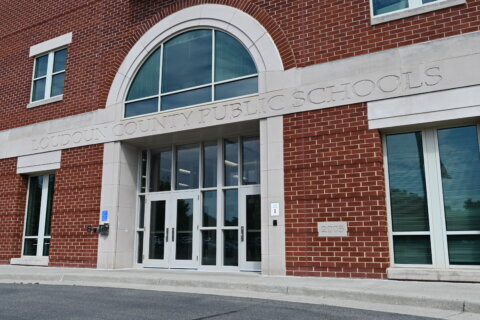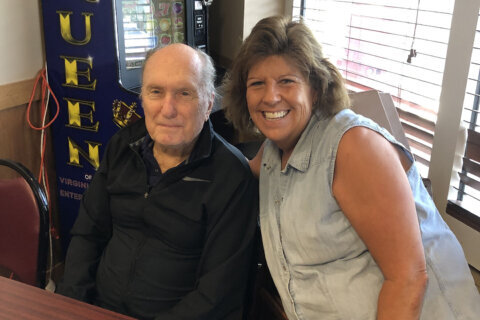This video is no longer available.
When A.J. Panebianco applied to be Middleburg, Virginia’s police chief in 2012, he had a goal: “Everybody who visits, lives, or frequents Middleburg would know our officers by first name.”
Back then, Middleburg’s police department was part-time. “Nobody worked from 2 a.m. to 6 a.m. — we had five officers, including the chief,” said Panebianco, in a WTOP interview.
Panebianco retired from the Middleburg department in 2023. He had previously been the chief of three other small Virginia departments, and was president of the Virginia Association of Chiefs of Police & Foundation in 2021 through 2022.
Panebianco, who came to be called “Chief A.J.,” describes his career, in a new book, “A Police Chief’s Journey: Diaries of an Extraordinary Career and Stories from Virginia’s Small Towns.”
In a region with law enforcement agencies ranging from the mammoth Federal Bureau of Investigation, to Virginia and Maryland state police departments, large county police and sheriff’s agencies and small town departments, Panebianco said “small towns give an opportunity for policing to be personalized.”
When he took the job, Panebianco said he established a rapport with the Middleburg community. “When I first arrived, I did a talk with the public, and said, ‘Look, if you want to break the law, go somewhere else — we don’t allow crime.”
That half-joke, combined with an offer of working with residents, business owners and visitors provided the basis for a partnership.
“We don’t have to police our community, because we’re the police for our community,” said Panebianco. “And, we’re not a thumb pressing on the citizens, we’re part of the team.”
In the affluent town, with a popular historic downtown area filled with restaurants, shops, book stores and small businesses, Panebianco said he sought to give people the benefit of the doubt with quality of life issues, including parking enforcement.
Panebianco recalled beginning his days getting a roll of nickels from the bank.
“It was the best $2 I ever spent. I would feed all the meters in town, and then the officers would do their parking enforcement. If someone came to me later and said, ‘it just expired,’ I could say ‘actually, I gave you an extra 10 minutes because I fed every meter in town,” said Panebianco.
In Panebianco’s early days in Middleburg, most investigations in the town were handed to the larger and better-resourced Loudoun County Sheriff’s Office.
“Essentially, if your bicycle was stolen, the police department would take the report. They wouldn’t even knock on your neighbor’s door to see if they saw anything. They just turned it over to the county — and I don’t police where I give away our work,” said Panebianco.

In time, and as the department grew slightly, Middleburg’s police department did many of its own investigations, seeking the help of the sheriff’s office for cases requiring forensic testing and analysis.
“My guys would work with the team, as opposed to saying, ‘here it is,'” said Panebianco. “So, it was a really good relationship.”
In today’s environment, asked why a young person would want to be a police officer, Panebianco said in most jurisdictions, the overwhelming majority of interactions between citizens and officers is positive.
“We used to say ‘we give more hugs than tickets’ in Middleburg, before COVID,” said Panebianco. “When we’d do our foot patrol downtown it would take us two or three hours, because people stopped and talked — we wanted to personally police that community.”
Get breaking news and daily headlines delivered to your email inbox by signing up here.
© 2024 WTOP. All Rights Reserved. This website is not intended for users located within the European Economic Area.








